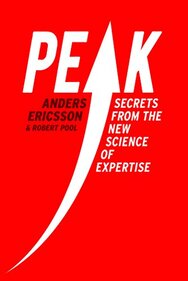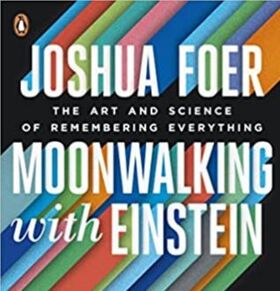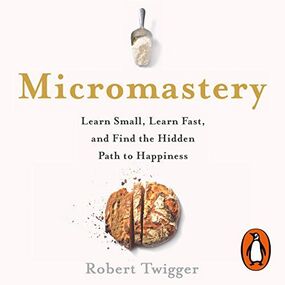
 Another excellent recent read has been the book ”Peak”, by the late K. Anders Ericsson and Robert Poole. The book is essentially a reader-friendly summary of the work that Ericsson had done throughout his extensive career looking at what makes experts as good as they are. As such, it provides some fascinating insights into many aspects of human learning and development - some of which are quite surprising. It was just by luck that I had also recently read a review on this topic by Duncan Chambliss entitled “The Mundanity of Excellence”. There are some overlapping themes here and both of these pieces are well worth a read. This blog post will primarily focus on the book but I shall draw any parallels where relevant.
1 Comment
 Whilst I have been exploring the different approaches to educational theory there is a book that I have heard mentioned a few times. I think it was probably first highlighted to me in the “Learning how to Learn '' course from Barbara Oakley, and it was one of those that I had put away on my list of books that I would one day get around to (this is a very long and increasing list). Now, finally, we have crossed paths and the lessons from it seem particularly relevant to some of the other areas of learning theory that I have touched upon before. As such, I wanted to put some of my thoughts together and share them here. Let’s begin.  My ongoing interest in learning techniques has led me to the book “Micromastery” by Robert Twigger. This is a fascinating read which promotes a slightly different approach to learning than I have ever previously explored. He describes how the “mastery” of small and well defined skills can actually provide notable educational benefits that go beyond the sum of these component parts. As such, it is really more a book about an approach to life than it is about educational theory, but this definitely adds to the relevance rather than detracts from. Indeed, its pages contained some great ideas that I wanted to share with you here. So let’s dive in. Let’s run a little thought experiment.
Your anaesthetist comes and talks to you before your surgery. Following his thorough yet efficient pre-operative assessment he tells you that it may be possible that his anaesthetic is simply a perfect amnesic agent. You could potentially experience the entire operation in the moment (unable to move or do anything about it) but at the end you would have absolutely no recollection of these events. You would ‘wake up’ from the anaesthetic with a perfect gap in your episodic memory; to all intents and purposes a period of ‘unconsciousness’. No one would know if you experienced anything (particularly you), and it would be exactly as if you hadn’t. But maybe you had. Would this bother you? And if it did, why? A couple of years ago I wrote a blog post looking at the technique of spaced repetition. With my (hopefully final) exams now completed I wanted to revisit the topic and add a few additional points that I think complement this approach to learning. These are ideas that I have come across over the intervening years of using spaced repetition, as well as from ongoing study around learning techniques. One of the most useful of these resources has been the free online course “Learning How to Learn” by Dr Barbara Oakley and colleagues on Coursera ( I believe I have read that this is the most popular course on Coursera). This course highlights some of the key evidence-based approaches to effective learning and I would strongly recommend the modest time investment involved in completing it. In addition, although I was still digesting it at the time of writing my initial blog post, I feel I have been able to absorb more of the concepts from the brilliant book ‘Make it Stick’. Although this is a more detailed dive into the evidence, this blog post from Eva Keiffenheim provides an excellent summary of some of the key themes which is well worth a look at. But now I’ll give a quick summary of some of my own learning points. These are all related to the optimal use of my flashcard deck using the Anki app, so some points may be more or less applicable to you depending on your own approach.
There is a saying that I like: "even a stopped clock is right twice a day". Now this is usually used as a bit of a mean joke when someone gets something right when you might not expect them to. However, we can use this as an example of a 'Gettier Case' (I think it is probably my favourite one). As I alluded to at the end of the last post, Edmund Gettier was a philosopher who demolished the classical definition of knowledge (Justified true belief) with a concise paper consisting of a few examples where there is a belief that is true and justified but is quite clearly not knowledge. Why is this important? Well his observation, demonstrated through his examples, made it quite clear that we don’t really have a great way of describing why one thing would count as knowledge, and another thing would just count as fluke, or a lucky chain of events. This is an issue that can impact significantly on how confident we can be in some of the things that we ‘know’. Let’s delve a bit deeper.
|
The BlogA collection of our most recent posts on articles, guidelines and interesting thoughts. Archives
February 2022
Categories
All
|
 RSS Feed
RSS Feed
